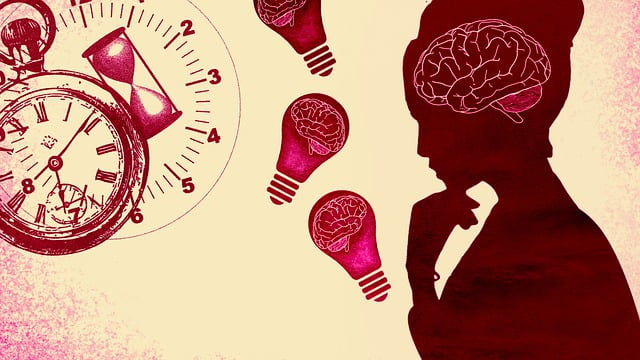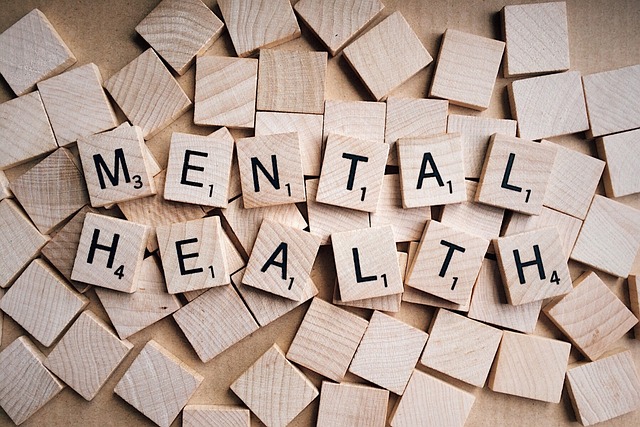Traditional therapy often overlooks the connection between social skills and mental health, particularly in elders managing chronic pain. Social limitations due to physical conditions or mental health symptoms can lead to isolation and exacerbate issues like anxiety and depression. Tailored therapy programs focusing on pain reduction, compassion cultivation, and support organization workshops are game-changers for elderly well-being. These interventions improve communication skills, reduce stigma, foster social support, and enhance quality of life by empowering seniors to navigate social situations comfortably. Group therapy sessions leverage Mind Over Matter principles to build resilience, break isolation barriers, and offer a holistic approach benefiting both elders and their caregivers.
Social skills training is a powerful tool for improving mental health, especially among the elderly. This comprehensive guide explores the intricate link between social interaction and well-being, focusing on the unique challenges faced by seniors with various mental health conditions. We delve into evidence-based therapies enhancing social abilities, offering techniques for effective pain management through engagement, and creating supportive settings for practice. By understanding these strategies, caregivers and professionals can significantly impact the lives of elderly individuals, fostering meaningful connections and improved mental health.
- Understanding the Connection Between Social Skills and Mental Health
- Identifying Challenges in Social Interaction for Elders with Conditions
- The Role of Therapy in Enhancing Social Skills for Elderly Individuals
- Effective Techniques for Pain Management Through Social Engagement
- Creating Supportive Environments for Practicing New Social Skills
Understanding the Connection Between Social Skills and Mental Health

The connection between social skills and mental health is a crucial aspect often overlooked in traditional therapy settings. Many mental health conditions can significantly impact an individual’s ability to interact and connect with others, leading to feelings of isolation and exacerbating existing symptoms. For instance, elders suffering from chronic pain may find it challenging to participate in social activities due to their physical limitations, which can result in increased anxiety or depression.
Social skills training plays a pivotal role in enhancing mental wellness coaching programs. By focusing on developing communication strategies, empathy, and interpersonal abilities, individuals with mental health conditions can improve their relationships and overall well-being. This is particularly important in reducing the stigma associated with mental illness, fostering a supportive environment, and enabling better risk management planning for professionals working with vulnerable populations.
Identifying Challenges in Social Interaction for Elders with Conditions

Elders with mental health conditions often face unique challenges when it comes to social interaction due to various factors such as age-related cognitive changes, physical limitations, and the impact of their specific condition. These difficulties can significantly affect their overall well-being and quality of life. For instance, anxiety disorders or depression might make social gatherings overwhelming, leading to avoidance behaviors and further isolation. Additionally, chronic pain management issues could hinder an elder’s ability to participate in social activities, as they may struggle with mobility or experience discomfort during interactions.
Addressing these challenges requires tailored interventions, such as specialized therapy programs focusing on pain management and stress reduction. The design of mental health education programs should consider the unique needs of elders, incorporating compassion cultivation practices to enhance their emotional resilience. Stress management workshops organized by support organizations can empower seniors with coping strategies, enabling them to navigate social situations more comfortably.
The Role of Therapy in Enhancing Social Skills for Elderly Individuals

For elderly individuals struggling with mental health conditions, therapy plays a pivotal role in enhancing social skills and overall well-being. Through structured sessions, therapists can help seniors navigate interpersonal challenges unique to their age group. This may include addressing anxiety or depression that often hinders social interaction, teaching effective communication strategies, and fostering an environment where they feel comfortable engaging with peers.
Focusing on mental wellness and resilience building, therapy for elders goes beyond managing pain. It equips them with the tools to manage social situations confidently, reducing feelings of isolation and promoting active participation in community activities. By incorporating burnout prevention strategies for healthcare providers—who often support these individuals—into their approach, therapists can ensure sustainable progress, enabling the elderly to thrive socially while maintaining their physical and mental health.
Effective Techniques for Pain Management Through Social Engagement

Social engagement is a powerful tool for managing chronic pain and improving mental wellness, especially among older adults. Through group therapy sessions or even simple social interactions, individuals can learn effective coping strategies to combat pain and its associated depression prevention methods. These activities foster positive thinking by redirecting focus from physical discomfort to shared experiences and social connections.
In the realm of pain management, social support acts as a crucial element in healing and rehabilitation processes. Engaging with peers experiencing similar challenges can break down feelings of isolation, offer valuable insights, and inspire resilience. Such interactions encourage individuals to develop mental wellness by fostering a sense of belonging and purpose, ultimately enhancing their overall quality of life.
Creating Supportive Environments for Practicing New Social Skills

Creating supportive environments is a cornerstone of successful social skills training, especially when tailored to individuals with mental health conditions. These environments should foster open communication and promote a sense of belonging, allowing individuals to practice new skills in a safe and non-judgmental space. For elders experiencing pain management challenges, group therapy sessions can offer an ideal setting. Facilitators can design activities that encourage interaction, such as discussion circles or collaborative problem-solving exercises, fostering a community feel. This approach leverages the Mind Over Matter Principles, encouraging participants to develop resilience and cope with their conditions through social engagement.
Additionally, incorporating strategies for burnout prevention is vital, particularly for healthcare providers assisting these individuals. By creating structured yet flexible environments, therapists can prevent caregiver burnout while ensuring consistent support. These strategies should focus on balancing caregiving responsibilities with opportunities for rest and self-care, promoting both the well-being of patients and the professionals supporting them.
Social skills training is a powerful tool in empowering elders with mental health conditions, offering them a path to enhanced well-being. By addressing specific challenges and employing techniques such as therapy and supportive environments, we can significantly improve their social engagement and pain management. Integrating these strategies into care plans allows for a holistic approach, ensuring elders feel connected, valued, and supported within their communities. This not only improves their mental health but also enriches the lives of those around them.








